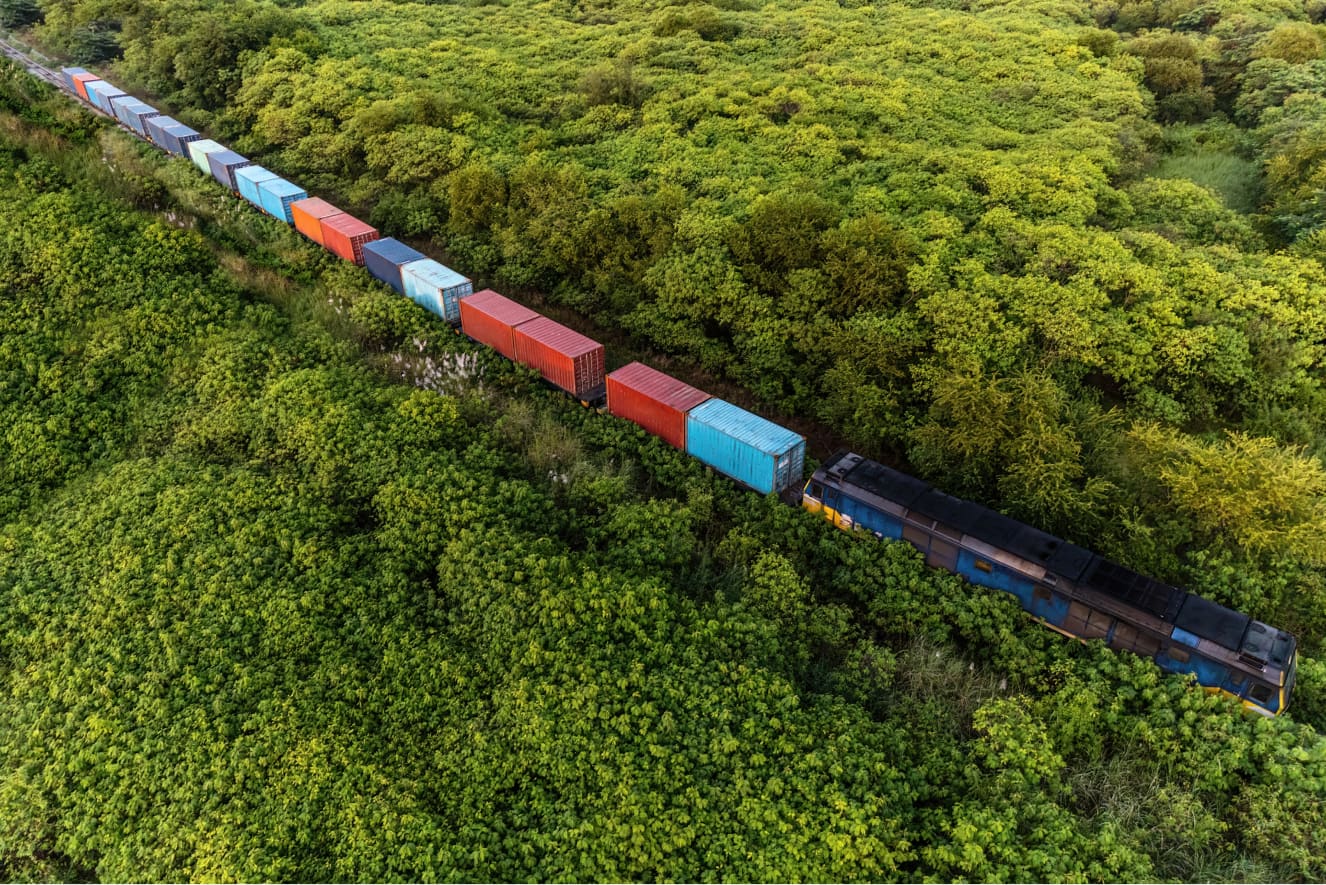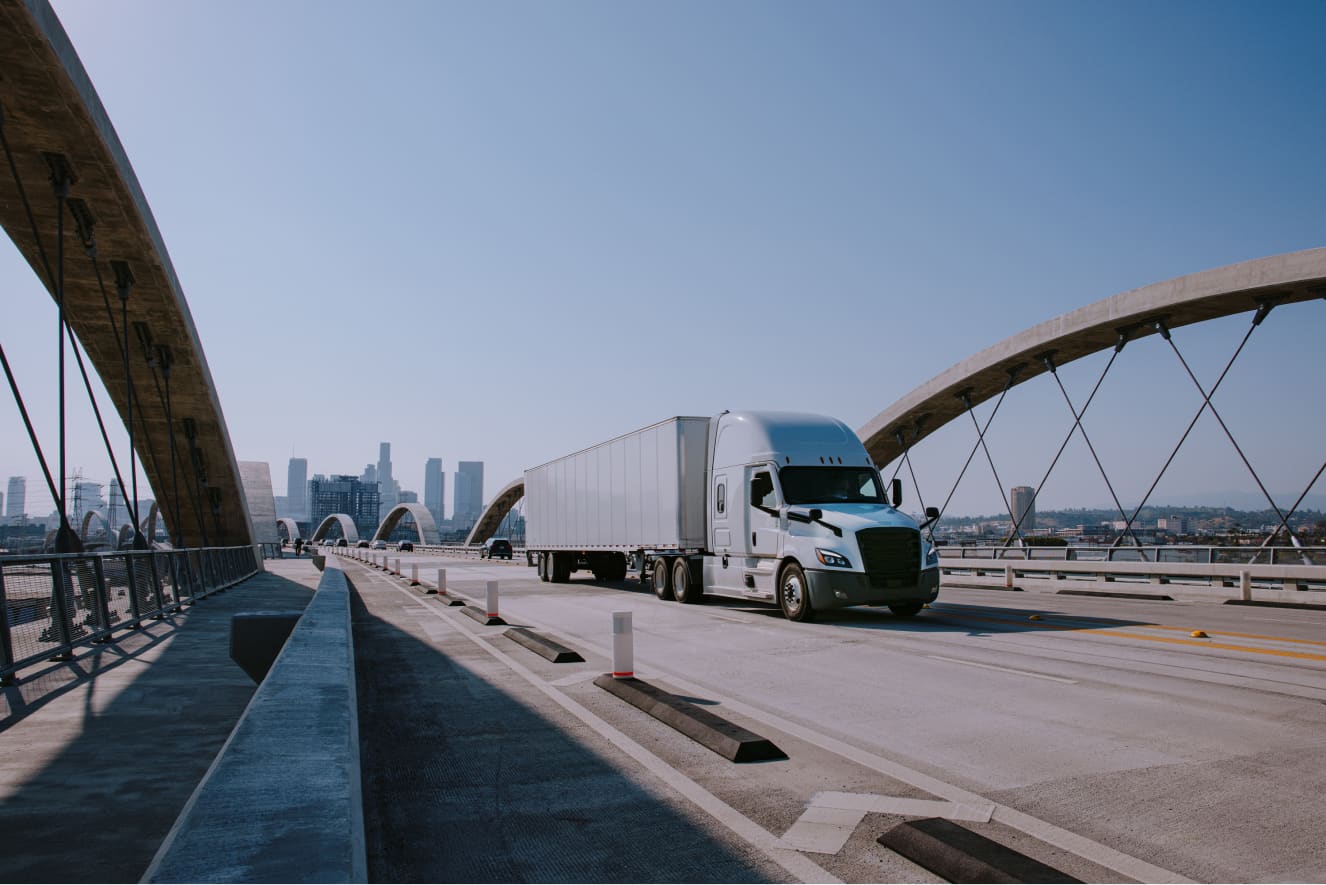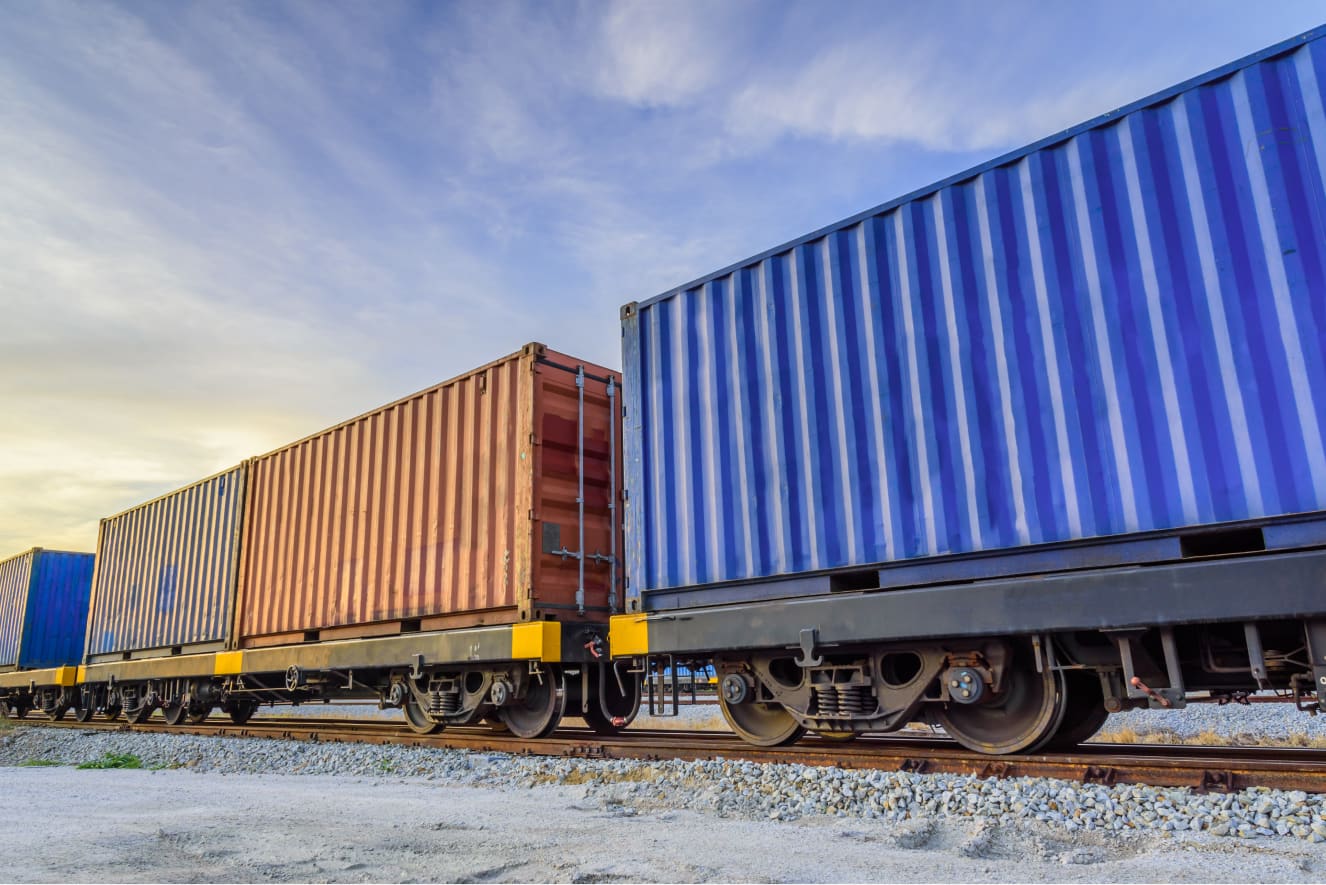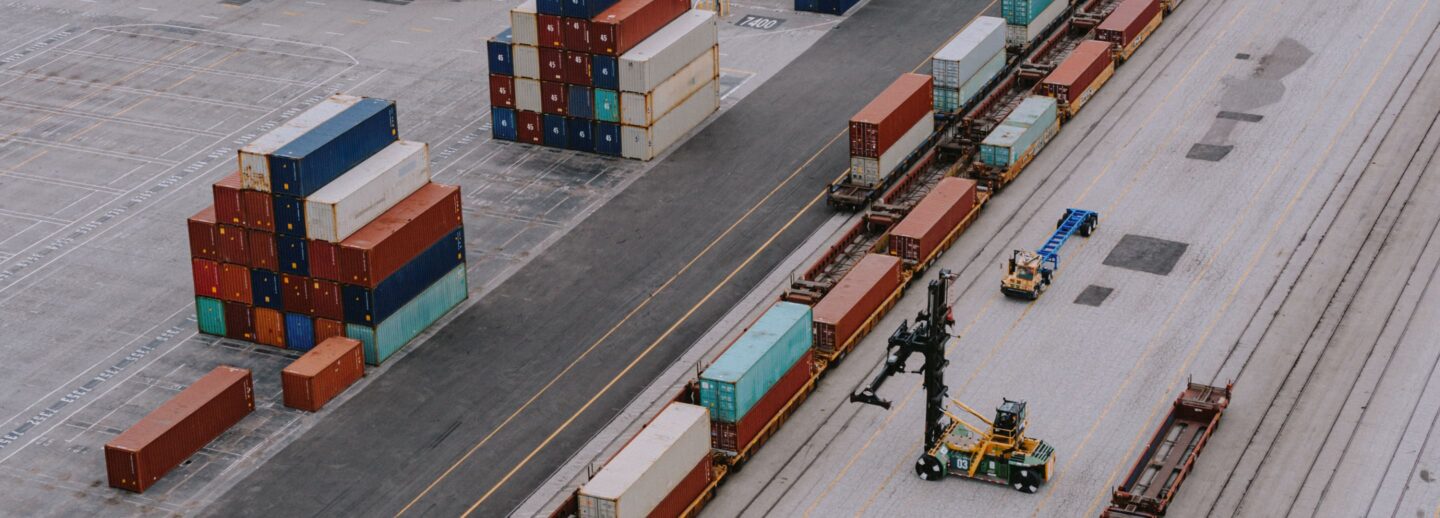
Intermodal Freight Shipping Services
Uber Freight offers fully managed intermodal shipping services, from brokerage to managed transportation, that take the guesswork out of intermodal freight, reduce shipping costs, and help you hit your sustainability targets.

Consistent, efficient, and flexible intermodal services across North America
Uber Freight is your destination for flexible, cost-effective intermodal shipping services. As the largest non-asset IMC in North America, we have access to 90,000+ containers in both up and down markets, as well as capacity in Mexico and Canada.
We partner with all Class 1 railroads, giving us unmatched flexibility to streamline your shipments. This allows our expert team lower costs and keep your supply chain moving without disruptions.
Why choose Uber Freight for intermodal shipping
Maximize ROI
Uber Freight gives you the flexibility to choose the best containers for your needs and easily return them to the network when you’re done. This can help reduce empty miles and keep your supply chain running efficiently.
Reduce shipping costs
Keep your shipping costs under control by locking in intermodal rates for up to 12 months to create stable and predictable budget forecasts. Extensive partnerships help us provide priority access to rail capacity and minimize unexpected surcharges or price hikes. We also regularly analyze your network to help you find cost-cutting opportunities.
Improve sustainability
Improve sustainability by moving freight more efficiently. Rail generates 75% fewer emissions than trucks, making intermodal shipments—where the majority of the distance is covered by rail—an effective way to reduce emissions. Our Emissions Dashboard accelerates your sustainability progress by identifying truck-to-intermodal conversion opportunities and provides an estimate of the resulting emissions improvements.
Intermodal shipping services
Our intermodal services are rooted in exceptional customer service and domain expertise. We have over 450 unique shippers moving loads on intermodal which helps us to offer more combinations of rates and routes, regardless of the railroad or container.

Container flexibility
Flexible container solutions
We accommodate 53’ and 40’ containers, offering flexible options to meet your needs. Whether you’re moving large, bulky items or high-density freight, our team can help you determine the best container for your shipment to reduce costs and increase efficiency.

Custom solutions
End-to-end customer support
Have questions about the best way to move your freight? Our dedicated intermodal team will help build a custom solution based on your timeline, budget, and specifications. You’ll be paired with an intermodal expert that will be your single point of contact and provide strategic support tailored to your individual needs.
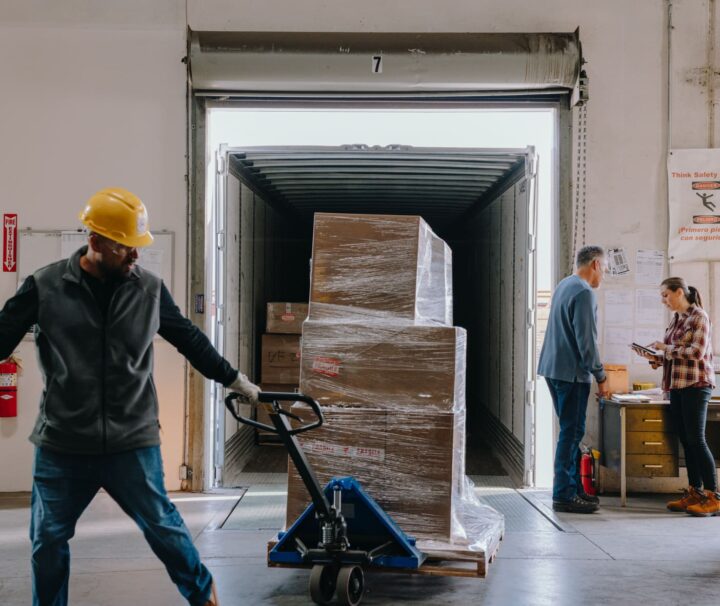
Door-to-door handling
Next-level convenience
Some shipments require an extra level of support and convenience. We’ll arrange pick up of your cargo and coordinate with our network to have it delivered directly to its destination. Sit back, relax, and let our team handle every aspect of your intermodal shipment.
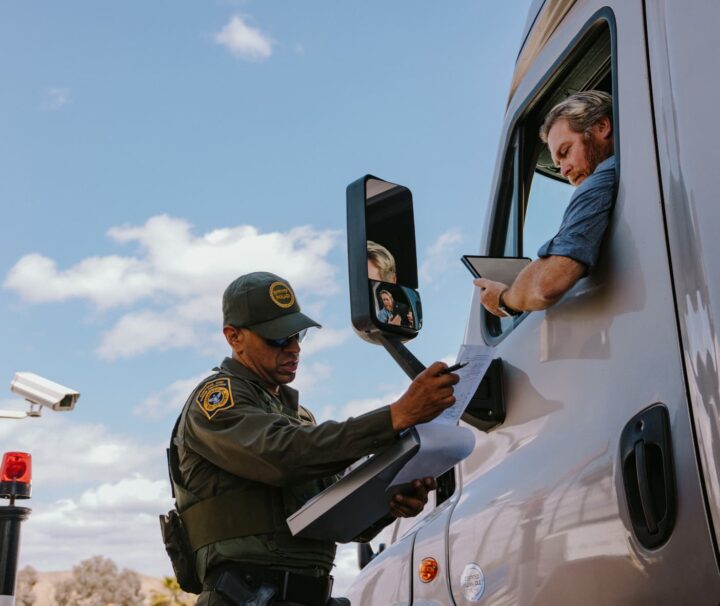
Cross-border
Cross-border expertise
We help shippers navigate the ever-changing environment of cross-border transportation. Whether you’re shipping to Canada or Mexico, our team of boots-on-the-ground cross-border freight experts is on-hand for all your freight needs. Our comprehensive approach improves load control, reduces friction in the multiplayer cross-border supply chain, and streamlines customs clearance.
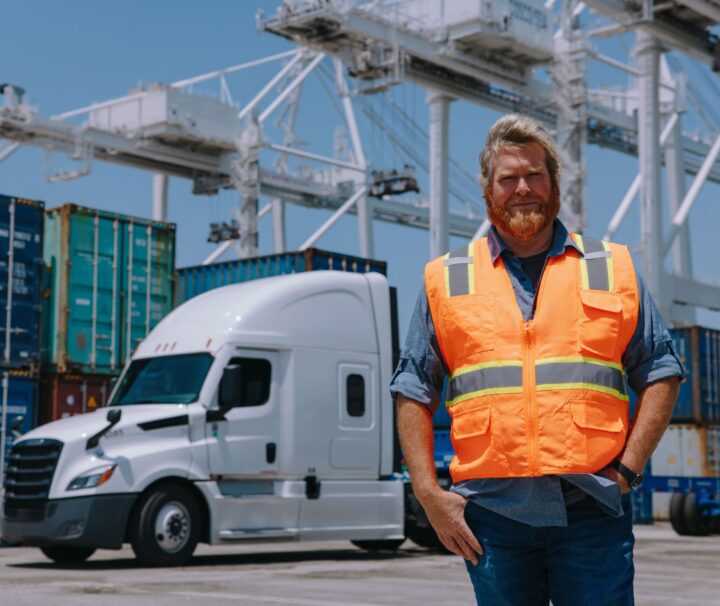
Drayage
Drayage and port operations
Efficient port operations and drayage are critical to keep your shipments on schedule to avoid costly delays. We simplify the critical first and last mile through reliable and compliant transfers to and from ports and our strong partnerships with railroads and port authorities reduce the risk of disruption.
Intermodal shipping resources
Intermodal shipping FAQs
What is the average intermodal rate?
The average intermodal rate can vary widely depending on factors such as distance, market conditions, and the specific route. As of recent data, intermodal rates typically range between $1.50 to $2.50 per mile, but this can fluctuate based on fuel costs, demand, and other economic factors.
What is the difference between intermodal and truckload?
Intermodal transport involves the movement of freight in containers using multiple modes of transportation (typically rail and truck). The containers loaded with freight are transferred between drayage carriers and rail carriers without the need to unload and load the cargo from one container to another. Truckload shipping, on the other hand, involves moving goods directly by truck from origin to destination without using other transportation modes. Intermodal is generally more cost-effective for long distances, while truckload offers faster transit times and is better for shorter hauls or time-sensitive shipments.
What is drayage vs intermodal?
Drayage refers to the short-distance transport of goods, often within a single metro area, such as moving containers from a port or rail terminal to a nearby warehouse or distribution center. It’s a critical component of the intermodal process, but only one part of it. Intermodal shipping, on the other hand, involves the entire journey of goods across different transportation modes, often covering longer distances.
What is the difference between intermodal and Conex?
“Conex” is a term often used to refer to standardized shipping containers, originally developed by the U.S. military. These containers are used in various types of transport, including intermodal. The key difference is that intermodal refers to the method of transportation (using multiple modes like rail and truck), while Conex refers specifically to the type of container used.
What is the most common intermodal container?
In partnership with Everstream, we have an operationally trained machine learning model that considers 40+ operations factors that are monitored for load impacts for on time delivery. Our goal is to revolutionize today’s tracking process. Service prediction is a statistical approach to forecasting an outcome and taking proactive measures to avoid service disruptions. The system is based on a learning algorithm that will increase its accuracy over time.
How do I track my shipment during intermodal transport?
You can track your intermodal shipment using Uber Freight TMS, which includes tracking and frequent updates. We provide comprehensive visibility throughout the entire intermodal journey so you can monitor your shipment’s status at each stage of transport.
What types of cargo can be transported using intermodal shipping?
Intermodal shipping can transport a wide variety of cargo, including consumer goods, electronics, machinery, automotive parts, chemicals, raw materials, and more. It is particularly well-suited for freight that needs to travel long distances and can benefit from the cost efficiencies of rail combined with the flexibility of trucking.
What are the typical costs associated with intermodal shipping?
The typical costs associated with intermodal shipping include the base transport rate, fuel surcharges, drayage fees (for the local transport of containers), terminal handling charges, and potentially accessorial charges for special services like expedited delivery or temperature control. Overall, intermodal shipping is often more cost-effective than full truckload transport, especially for long distances.

Intermodal freight made easy
Contact us today to learn how Uber Freight can simplify your intermodal shipping.

